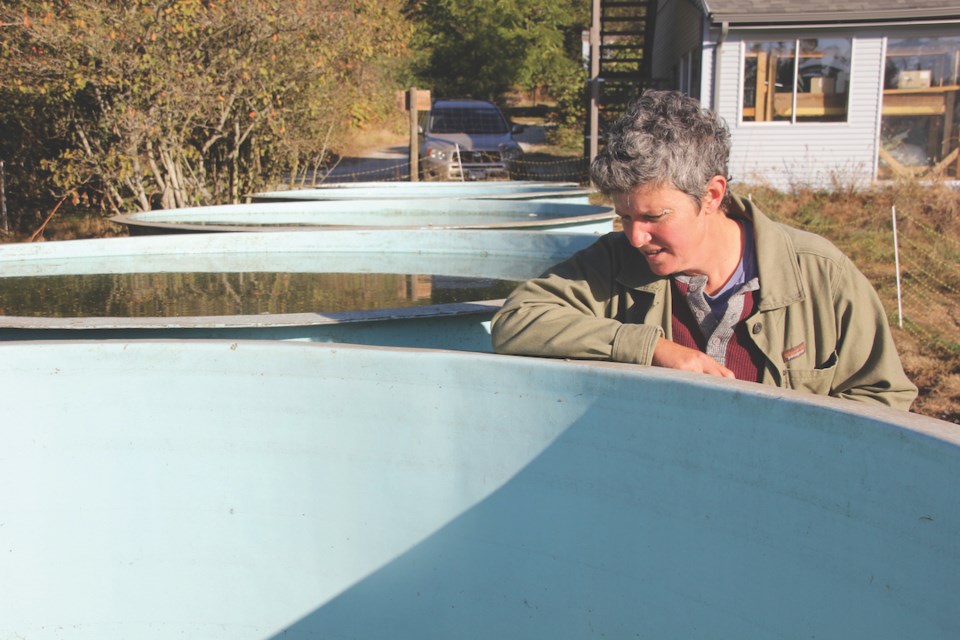A report on options to secure water supplies for the 2023 crop season of local commercial food growers have been called for by the Sunshine Coast Regional District’s (SCRD) committee of the whole.
Area E director Donna McMahon asked that those details be provided this spring. She echoed a message delivered by a delegation from the Sunshine Coast Farmers Institute: “You need the assurance that there will be water before you plant your crops.”
Stage 4 rule exemptions requested
The Institute made a presentation at the committee’s Jan. 12 meeting. Representatives Julie Carrillo and Mel Sylvestre requested the SCRD provide permanent exemptions from Stage 4 outdoor water use bans for the Coast’s estimated five to 10 commercial food producers.
“Water restrictions based on indoor versus outdoor water uses are simply unfair to farmers,” Carrillo said. She outlined that the current rules banning outdoor water uses at Stage 4 have been detrimental to the community and food security efforts for the Coast.
“Local farmers are already at a breaking point and need equitable access to our water infrastructure… Our proposal will have minimal impact on the water supply and a significant impact on the region’s struggling farms. Please help us to protect the sector that feeds us.”
At the meeting staff noted that water conservation regulations have been reviewed on an annual basis in past years. While concerns were expressed by staff about how changing the restrictions can be confusing for the public, Area D director Kelly Backs stated that it was “very important to get a chance to review how restrictions are to be handed out before the summer months."
“Exemptions [from water use restrictions] are great but what we really need is more water supply,” was the comment that came forward from Sechelt area director John Henderson.
Rate reductions requested
Lowering of water rates charged to commercial farms by 50 per cent was an additional ask in the Institute’s presentation.
In response, the committee agreed that discussion of such adjustments needed to be delayed until after May. That is when a regional water rate review report is scheduled to be completed. Staff pointed out that impacts for the full range of users should be looked at before rate reductions for farmers are considered, reminding the committee that if commercial farm water rates go down, other user rates may have to be increased to cover the operating costs of the water service.



